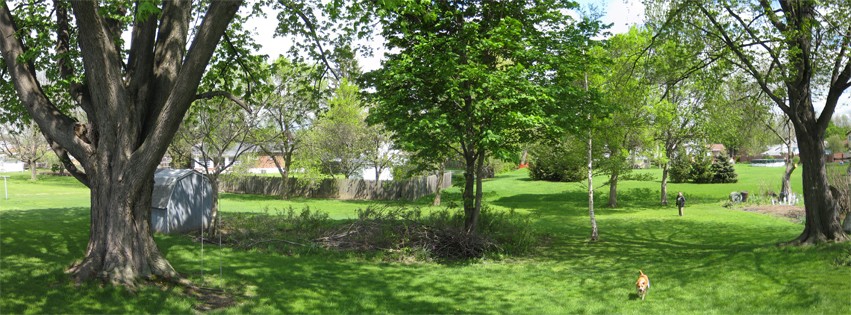JoynersHotPeppers said:
Square foot gardening can be awesome for many plants and utilize space perfectly well while allowing you to 100% control the grow medium.
We were already planning on doing raised beds in our backyard, and this method could work perfectly with that. Thanks for the suggestion. I'll be doing plenty of reading on the subject in the coming months.
dash 2 said:
First of all, congratulations! Second, if you will have room inside your new home, you might want to try starting some plants in June for overwintering. I started some seeds outdoors last summer in ~6" pots with the sole intent of getting a head start on this year. It's way easier and cheaper to start plants outside under the sun than it is to try to create optimal pepper growing conditions indoors in the dead of winter.
Last year was just a trial run of this technique - to play around with planting date and germination conditions. The plants I started look so healthy and robust compared to my January starts that I'm planning on starting many more plants this summer (for 2015).
Just something to think about... If you're like me, you'll be itching to hit the ground running when you move in and have all those plans for your upcoming garden. This might be a good way to put your ambition to good use (and get a head start on growing some real monsters to let loose in your 2015 garden!)
Also, if you have trees in your yard, mulch the leaves up with your mower and spread them (and all your grass clippings) over your lawn where you plan on putting your garden beds. Doing so will snuff out the turf over the winter - making it way easier to work in spring. Also, it will give your resident earthworms a home and a buffet. Populations will skyrocket during the fall and spring months, and your soil will be that much better because of it.
Whatever you do, you're about to begin my favorite game. It's called the "replace as much useless lawn with garden beds, fruiting trees and shrubs and mulch rings game". You know you're winning when you spend less time mowing your lawn every year. Good luck and post lots of before and after pics!
We're one step ahead of you here. I have 10 starter plants going right now, and they will be coming with us when we move the end of next month. I will also be picking up some other varieties at a couple of local nurseries in the very near future. I plan on growing them outdoors for as long as I can this year, and then overwintering them in our big front window which will provide them with plenty of natural light.
And we do have several trees in our front and back yards, along with a pretty big lawn. So I know I will have plenty of compost material to use to my advantage. I also know that I will want to convert as much of our .4 acre lot into garden space so that I can spend more time on that than I am mowing the lawn.
Here's a photo of our backyard, BTW:
neoguy said:
First, congratulations on the house.
Second, buy some peppers and grow them in containers, you can transport them easily to the new home.
Third, after you move into the new house and identify the garden area start gathering any free or cheap manures, such as rabbit or alpaca, or composted manures such as chicken, cow or horse. Spread that over your designated garden area this year. Till it in this fall or next spring.
Fourth, start home composting right away.
I will see about getting some cheap manures for the yard, and composting is definitely in our plans. As of right now, we're leaning towards worm composting. It seems to be one of the better ways to reduce food waste, and also be able to put all of our lawn trimmings and dead leaves to good use.
spysee said:
If you can learn kamikaze or even kwijibo you'll be able to learn to grow peppers.
LOL. Thanks for the vote of confidence. Now if only growing hot peppers could be as easy for me to learn as those yo-yo tricks. =P
sicman said:
joyners has one of the better square foot operations ive seen going on. check out his glog then look at some you tube documentry square foot projects.
does this house have a room for "Yo"
I will definitely bookmark his glog for reference. After talking it over with the wife and mother-in-law, it sounds like they are both pretty keen on using that method for our vegetable garden. For our hot peppers though, with how much shade we get from the big trees in our yard, we might be putting up a couple of 20' x 10' hoop houses for those. That will allow us to make more use of the sunlight.
Oh, and there will most definitely be room for "yo" in the new house. I just got hooked up with an old friend's music label, actually, and I will be using his entire music catalogue for yo-yo video tutorials. So I will be doing a ton of filming at the new place once we get all settled in, and doing what I can to share my knowledge of yo-yoing with the rest of the world. I've ot more tricks than a magic shop.




